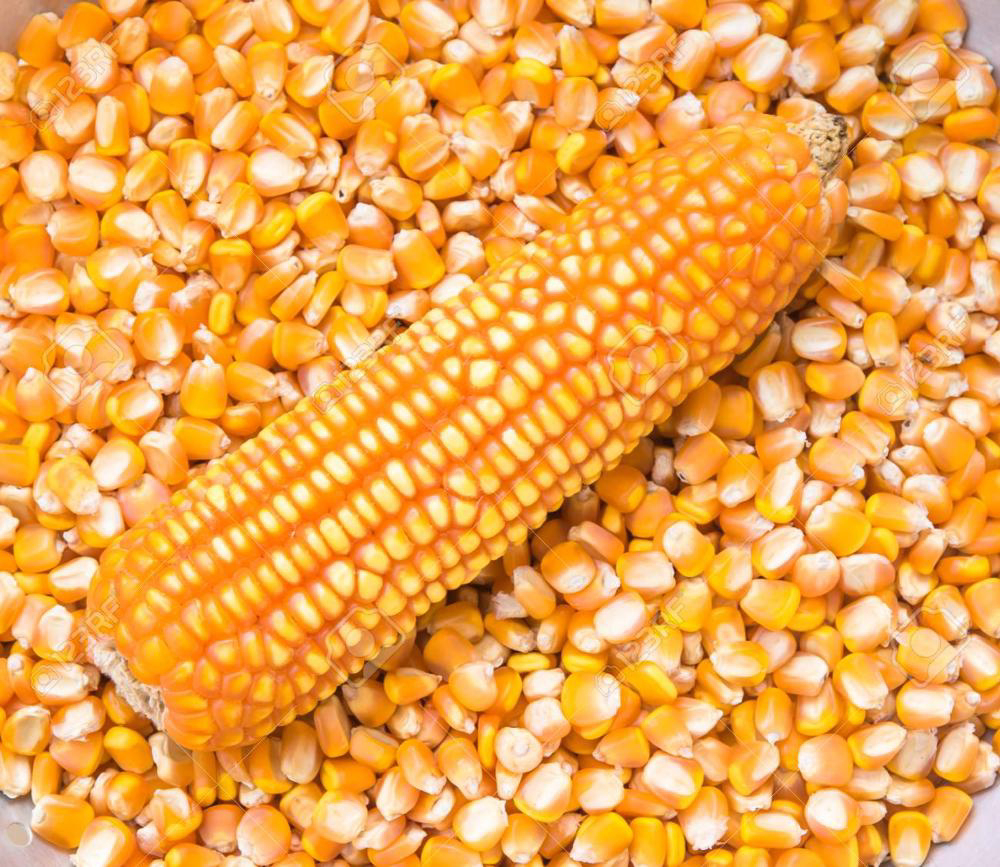"Learn how to export maize from Nigeria—from sourcing, quality checks, packaging, to international shipping. A beginner’s step-by-step guide to profitable maize export."
Introduction: Tapping into Nigeria's Maize Export Potential
Maize, also known as corn, is not just a major food staple globally; it's one of Nigeria's top agricultural products, offering immense export opportunities. With consistent demand from countries like India, China, and Spain for animal feed and various industrial uses, exporting maize from Nigeria can be a highly profitable venture for agro-traders. This guide walks you through everything needed to get started, ensuring your first foray into maize export is successful and rewarding.
Why Export Maize from Nigeria?
Nigeria holds a significant position in global maize production, making it an attractive source for international buyers:
Top African Producer: Nigeria ranks among the leading maize producers in Africa, ensuring a consistent supply.
Growing Global Demand: The international market has a steady and increasing demand for maize, particularly for animal feed and diverse industrial applications.
Competitive Pricing: Nigerian maize often comes with competitive pricing compared to other international suppliers, which can lead to favorable export margins when managed properly.
Favorable Export Margins: With effective logistics and stringent quality handling, the profit margins for maize export are very attractive.
Steps to Export Maize from Nigeria
A systematic approach to maize export ensures quality, compliance, and profitability:
Source from Reliable Farmers & Aggregators:
Key Regions: Maize is widely cultivated across Nigerian states like Kaduna, Niger, Plateau, and Taraba.
Partnerships: It's crucial to establish strong relationships with aggregators or farmer cooperatives to ensure a consistent supply of high-quality maize kernels. This partnership is vital for maintaining product consistency and meeting export volumes.
Clean, Dry, and Grade the Maize:
Cleaning: Utilize specialized grain processors to thoroughly clean the maize, eliminating impurities and foreign matter.
Drying: Reduce the moisture content to below 13%. This is critical to prevent mold growth, maintain grain quality during transit, and meet international moisture standards.
Grading: Implement a rigorous grading process. Only export healthy, mature kernels. This step is essential for satisfying customs regulations and ensuring buyer satisfaction.
Quality Checks: Always test maize for aflatoxin levels and pest infestation before packaging and shipment. These checks are non-negotiable for international compliance.
Secure Required Export Documents:
Business Registration: Your export business must be formally registered with the Nigerian Export Promotion Council (NEPC). This is a foundational step.
Other Essential Documents:
Certificate of Origin: Verifies the country of production.
Phytosanitary Certificate: Confirms the maize is free from pests and diseases.
Bill of Lading: The contract between the shipper and the carrier, acting as a receipt for the cargo.
Commercial Invoice: Details the transaction between buyer and seller.
SONCAP (Standards Organization of Nigeria Product Certificate): Required for many products entering Nigeria, and sometimes for exports, ensuring compliance with standards.
Decide on Shipping Terms (Incoterms):
Agreement: Clearly define international trade terms with your buyers. Common Incoterms include:
FOB (Free on Board): The seller is responsible for goods until they are loaded onto the ship.
CIF (Cost, Insurance & Freight): The seller covers costs, insurance, and freight to the named port of destination.
EXW (Ex Works): The buyer is responsible for all costs and risks from the seller's premises.
Responsibility: These terms determine who bears the responsibility and costs of logistics, insurance, and potential risks at different stages of the export process.
Use Licensed Freight Forwarders & Proper Packaging:
Transportation: Arrange for the efficient transport of your maize through major Nigerian seaports like Apapa, Tincan Island, or Onne.
Packaging: Ensure maize is securely packed in durable bags (e.g., woven polypropylene).
Palletization: Bags should be properly stacked on pallets within containers. This prevents moisture accumulation, pest issues, and damage during shipping.
Ventilation: Consider using ventilated containers to maintain optimal conditions and prevent spoilage during long transits.
Payment & Contract Security:
Contracts: Always get detailed contracts signed with your buyers.
Payment Methods: For secure international transactions, utilize methods like LC (Letter of Credit) or TT (Telegraphic Transfer). These provide a layer of financial security for both parties.
Your Independent Partner for Quality & Ethical Sourcing from Dawanau Market, Kano, Nigeria
Navigating the intricacies of maize sourcing, quality control, and export procedures in Nigeria can be complex, especially for first-time exporters or international buyers. This is where expert local support becomes invaluable.
I'm Ugbe Celestine Akwagiobe, an independent quality sourcing agent specializing in ethical procurement directly from Dawanau Market in Kano, Nigeria. My on-ground presence and expertise allow me to ensure that your maize (and other agro-commodities like sesame, soybeans, cocoa, cashew nuts, pigeon pea, Cassia tora, peanuts, hibiscus, or ginger) procurement is not just efficient, but also adheres to the highest global standards for quality and ethical practices.
I offer:
Direct & Ethical Sourcing: Connecting you with reliable farmers and aggregators.
Rigorous Quality Control: Implementing essential pre-shipment inspections and quality checks.
Streamlined Local Logistics: Managing local transportation, processing, and preparation for export.
Transparency & Accountability: Providing clear communication and trustworthy oversight throughout the sourcing process.
Ready to start your profitable maize export journey from Nigeria with confidence?
Let's discuss how my independent sourcing expertise can ensure the success and quality of your next agro-commodity venture.
Contact Ugbe Celestine Akwagiobe today:
Phone: +2347069777018
WhatsApp: +2348145835804
Email: Akwadedon.hill@gmail.com
Address: Dawanau Market, Kano, Nigeria
Conclusion: Success in Nigerian Maize Export
Exporting maize from Nigeria can be a highly rewarding business if approached professionally and with a strong focus on quality, consistency, and proper documentation. By leveraging local expertise for sourcing and quality handling, you can ensure compliance with buyer specifications and achieve significant revenue in the global market.


